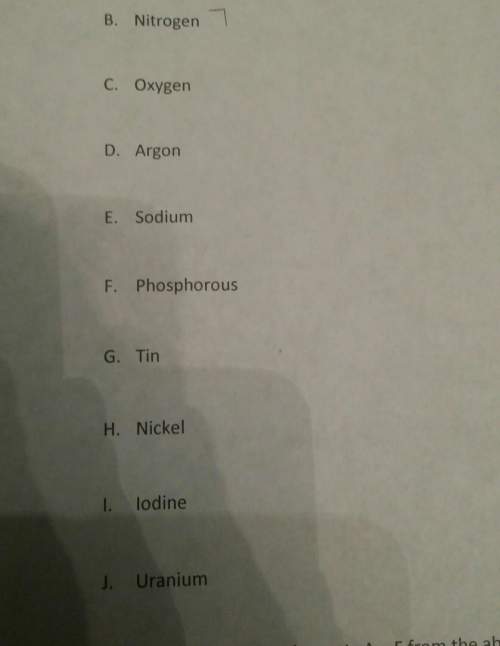
5) (3 parts) calculate the average density of the following objects (assume they are all perfect spheres). use the steps detailed in the examples. show all your work (formulas used, numbers plugged in with proper units, and clearly indicate final answer! a) mass=6.0x1024kg, diameter=12000km (12,000,000 meters) b) mass=2.0x1030kg, diameter=1.4x106km c) what objects in our solar system are similar to the objects in part a and b in terms of size and density (see appendix tables)? which one has greater average density? 6) (2 parts) suppose you have a moon of mass of 4.8x1022kg, and a diameter of 3100km (3,100,000m). a) calculate the average density of this moon. b) considering that water ice has a density of around 1000kg/m3, and silicate rock is around 3000kg/m3, is the bulk of this satellite mostly ice or rock? show all !

Answers: 1


Other questions on the subject: Chemistry

Chemistry, 22.06.2019 15:30, dylannhandy
Using the first volume and temperature reading on the table as v1 and t1, solve for the unknown values in the table below. remember to use the rules of significant figures when entering your numeric response.
Answers: 2

Chemistry, 22.06.2019 19:30, simihehe
Phosphorous can form an ion called phosphide, which has the formula p3−. this ion can form an ion called phosphide, which has the formula p3−. this ion properties very similar to those of pforms when a phosphorus atom loses three protonsis called a cationcontains 18 electrons
Answers: 2


Chemistry, 23.06.2019 01:00, Angelofpink1143
If i had 2 m naoh solution, what does the 2 m stand for? 2 molar, but 2 of a solute in 1
Answers: 1
You know the right answer?
5) (3 parts) calculate the average density of the following objects (assume they are all perfect sph...
Questions in other subjects:

Mathematics, 14.06.2021 23:50



Mathematics, 14.06.2021 23:50


Spanish, 15.06.2021 01:00


Mathematics, 15.06.2021 01:00

English, 15.06.2021 01:00

Mathematics, 15.06.2021 01:00













